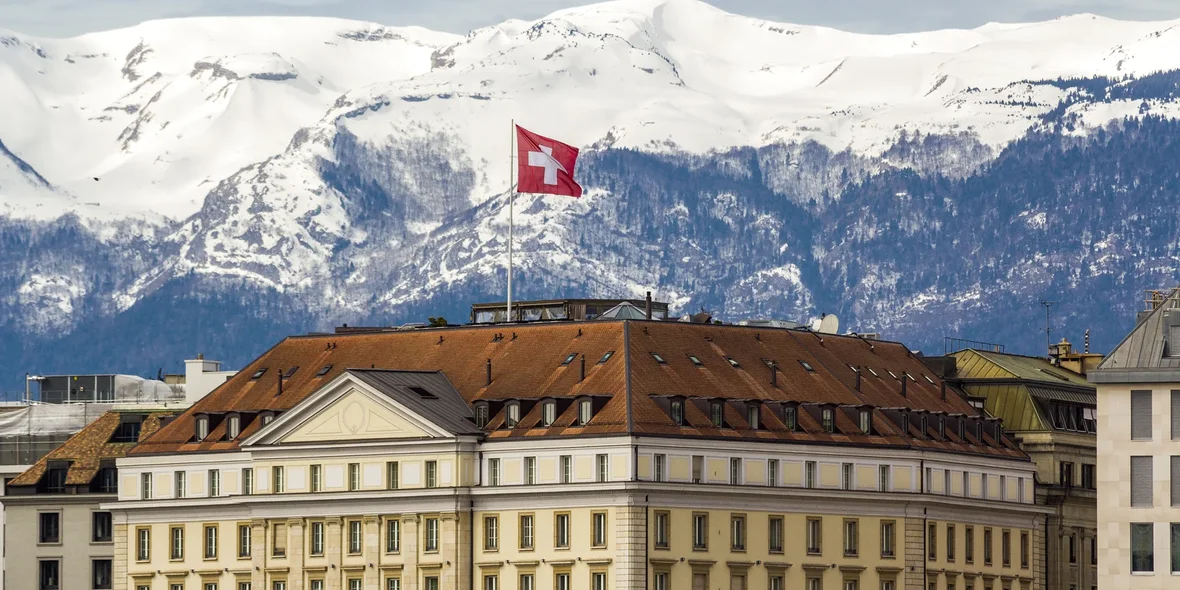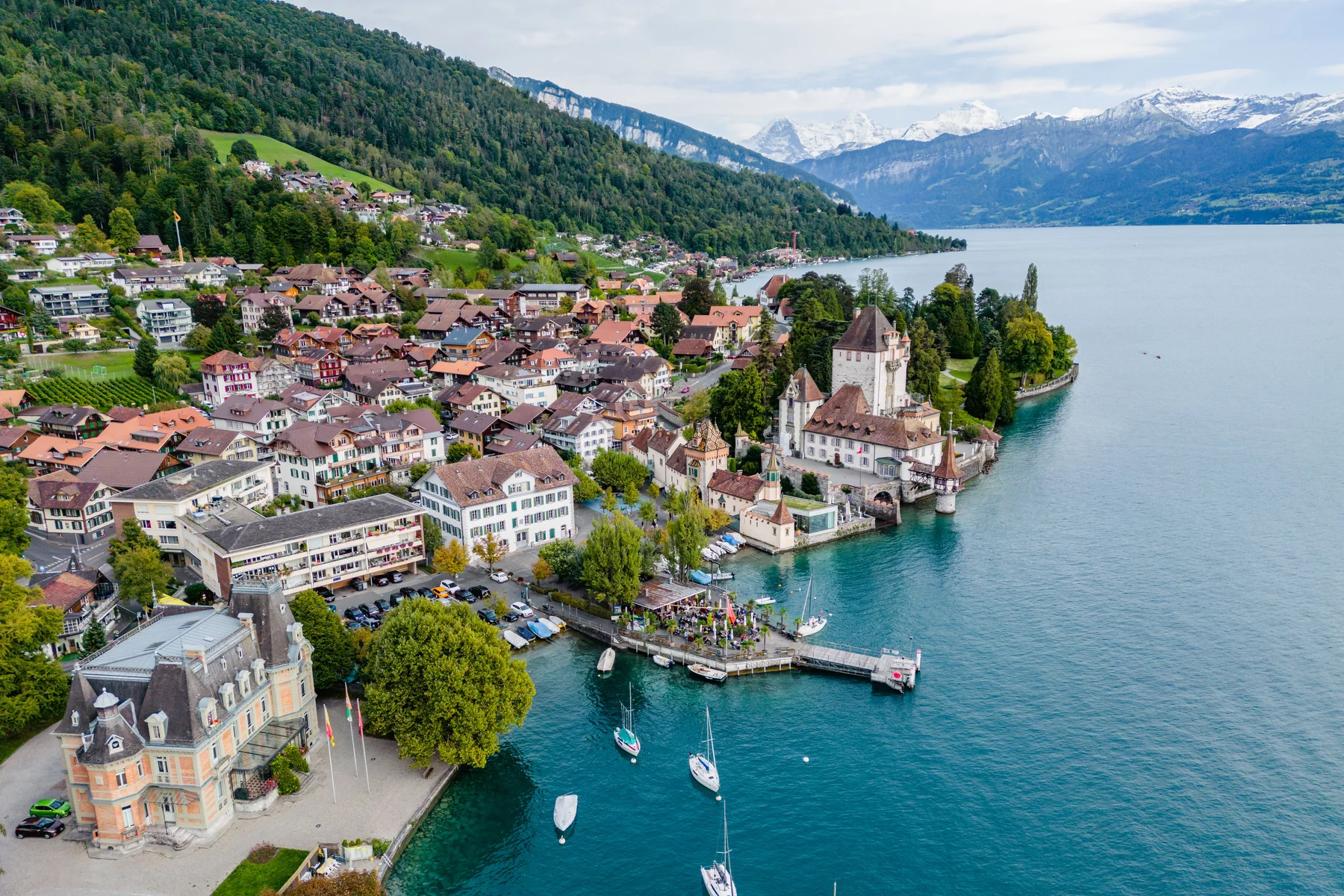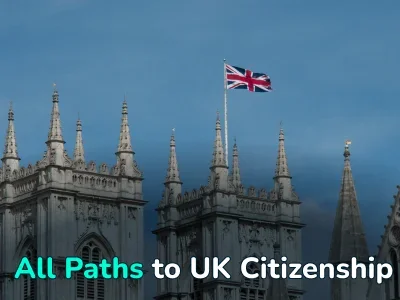
Moving to Switzerland for Permanent Residence: Cost and Requirements of Relocation Through Marriage, Work, Study, Investment
Switzerland consistently ranks among the global leaders in international indexes. In 2024, it was placed in the top three countries in both the Human Development Index and the Quality of Life Index. Local residents earn high incomes even compared to other wealthy European nations, while social programs provide reliable support in difficult times.
It is therefore no surprise that many people wish to integrate into Swiss culture and become part of its society. However, Switzerland’s immigration policy is quite strict, and achieving residency is not that easy. Obtaining a residence permit in Switzerland is a complex process, especially for citizens of non-EU/EFTA countries.
In this article, we will explore how to relocate to Switzerland and what steps are necessary to achieve this.
Advantages of Living in Switzerland
Before moving to Switzerland, it is important to understand what benefits it offers. Behind the general claims of high development and quality of life stand very concrete figures:
- High incomes. The average salary in Switzerland is around 7000 CHF per month, roughly equivalent to $8000.
- Advanced healthcare. Switzerland ranks among the top 10 countries worldwide in terms of healthcare quality.
- World-class education. The country’s universities are consistently ranked among the top 20 globally.
- Safety. Switzerland has one of the lowest crime rates in Europe, with just 0.5 serious crimes per 1000 residents.
At the same time, immigration to Switzerland comes at a high cost. Average monthly expenses for a single person in Zurich amount to 4000–5000 CHF ($5000–6200), including rent and mandatory health insurance. Both Zurich and Geneva are ranked among the five most expensive cities in the world.
How to Obtain a Residence Permit in Switzerland
Relocation to Switzerland for permanent residence is only possible after securing a residence permit (Permit B or L). The most common pathway is through employment with a Swiss-based company. This program is open to candidates who have an employment contract for a position unavailable to Swiss or EU/EFTA citizens.
There are two main requirements. The first is holding a diploma that confirms the applicant’s qualifications. For citizens of third countries, diplomas must be officially recognized and apostilled. The second requirement relates to work experience, which should amount to 3–5 years.
The employer submits the application to the cantonal migration office. Once approved, the applicant receives a type D visa through the Swiss consulate. Each canton enforces quotas on hiring foreign workers. For example, in Zurich, only 1200 permits were issued in 2024, which makes competition among candidates extremely intense. Moving to Switzerland for jobs that do not require high qualifications is practically impossible.
EU/EFTA citizens benefit from the Agreement on the Free Movement of Persons between Switzerland and the European Union. This means they do not need to go through the same restrictive quota system as third-country nationals to obtain a special work permit in Switzerland for EU citizens.
However, a permit is still required to live and work legally in Switzerland:
- For employment lasting less than 90 days per year, EU/EFTA citizens only need to register their work online with the Swiss authorities.
- For employment lasting more than 90 days, they must apply for a residence/work permit (most often Permit L for short-term contracts or Permit B for long-term residence). The process is straightforward: usually, the employer submits the contract, and the local commune registers the worker.
Unlike third-country nationals, those moving to Switzerland from the EU are not required to prove that no Swiss or EU candidate could fill the role, and they are not subject to annual quotas (with the exception of certain safeguard clauses that may be reintroduced in specific circumstances).
A green card in Switzerland does not grant any immigration advantages to its holders. The Swiss authorities recognize only citizenship when applying immigration rules, not permanent resident status from another country.
Family Reunification
Residence permits can also be obtained by spouses, children under 18, and parents of Swiss residents (holders of a Permit B or Permit C in Switzerland or Swiss citizenship). This relocation program is more of a supplementary pathway and applies to those who are already residents and wish to secure a legal stay for their family members.
Switzerland immigration requirements for applicants:
- Proof of family relationship (marriage or birth certificate with an apostille).
- Financial support: the resident’s income must be at least 4,000 CHF per month (around $5,000) for a couple.
- Housing: a minimum of 15 m² per person.
The Swiss resident must personally submit the application through the consulate or the cantonal migration office. The average processing time is about three months, though in some cases it may extend up to six months.
Residence Permit Through Marriage
In practice, this type of residence permit is essentially the same as under the family reunification Switzerland immigration program, but it is often used as the primary pathway for moving to Switzerland. If you marry a Swiss citizen or resident, you are entitled to family reunification — in other words, to obtaining a residence permit.
Requirements for relocation through marriage:
- A valid passport.
- A marriage certificate and proof of cohabitation.
- Adequate housing that meets Swiss standards (at least 15 m² per person).
- The spouse must not be a recipient of social assistance but must have an independent source of income.
- If you do not speak the language of the canton (German, French, or Italian), you must learn it to at least the A2 level (B1 for spoken communication).
It is also important to note that divorce or loss of resident status leads to cancellation of the residence permit. Moreover, migration authorities thoroughly investigate applicants’ marriages. If a marriage is found to be fraudulent, this can result in loss of residency status, deportation, and a ban on entry. If a Swiss citizen is involved in the scheme, they may face financial penalties.
It is not possible to directly obtain Switzerland citizenship by marriage, but applicants may qualify for a simplified naturalization procedure. Normally, ten years of residence are required to apply for citizenship, but in practice, five years may be sufficient.
If you live in Switzerland with your spouse, the marriage must have lasted at least three years at the time of application. If you live separately and outside Switzerland, the marriage must have lasted at least six years. In either case, it is not enough to marry and live permanently abroad — applicants must maintain close ties with Switzerland, make regular visits, and participate in local community activities.
If the sponsoring spouse dies, the accelerated procedure of getting citizenship by marriage in Switzerland also becomes unavailable.
Business Immigration to Switzerland
It is not possible to directly obtain Swiss citizenship by investment. However, it is possible to secure a residence permit by starting a business or making financial contributions. In certain cantons (such as Geneva and Vaud), there is a lump-sum taxation program available for wealthy individuals. Purchasing Swiss real estate (from 1–2 million CHF) does not grant a residence permit but can be taken into account within broader financial programs.
Minimum requirements for residency by investment in Switzerland:
- Registration of a legal entity: GmbH with a minimum share capital of 20,000 CHF (approx. $25,000) or AG with a minimum share capital of 100,000 CHF (approx. $125,000).
- A viable business plan with a detailed description of the product/service, target market segment, intended customer base, and projected turnover (often starting from 500,000 CHF).
- Job creation for locals, with at least 2–3 positions reserved for EU or Switzerland passport holders.
- Proof of sufficient personal income/assets to cover living expenses and demonstrate no intent to rely on social assistance.
A «paper-only» company registration is not sufficient. Cantonal authorities require evidence of actual operations, including contracts, investments, office premises, and staff. When extending the permit, they closely review whether the business is genuinely active.
Sometimes «business immigration through real estate» is mentioned, but in reality, you can’t just buy property in Switzerland and get residency. Real estate acquisition alone is not considered an economic contribution, since it does not create jobs or generate tax revenues at the level cantons are interested in. To qualify for residence through investment, one must establish a company (GmbH/AG) that makes a tangible contribution to the Swiss economy.
Swiss Residence Permit for Students
Immigration to Switzerland through education is a viable but limited pathway. Foreign students are granted a category B residence permit for the entire duration of their studies at an accredited Swiss university.
The main requirement for a Switzerland student visa is an admission letter. Applicants must submit it to the Swiss consulate in their home country. Proof of sufficient financial resources is also required, as authorities demand evidence of at least 21,000 CHF (approx. $26,500) per year to cover living expenses.
Students are allowed to work during their studies, but with restrictions: in the first six months, non-EU/EFTA students are not permitted to work at all. After that, they may work up to 15 hours per week during the semester. Holidays are an exception, when full-time work is allowed.
Upon graduation, the government grants six months to find employment related to the student’s field of study. If a local employer is secured and a work contract signed, the student’s residence permit in Switzerland can be converted into a work permit. If not, the permit automatically expires, and the graduate must leave the country.
Swiss Residence Permit for Refugees
Swiss citizenship for refugees is available under the general rules of naturalization, but obtaining it first requires recognition of refugee status. Applications for asylum must be submitted at a federal asylum center upon entry into the country or directly at the border. However, behind the apparent simplicity lies a strict vetting process: in 2023, Switzerland received 31,400 asylum applications, but only 18% were granted refugee status (Permit B in Switzerland), and about 30% received temporary admission (Permit F). The remainder were rejected.
To obtain a positive decision, applicants must prove a genuine threat to their life, persecution, or discrimination in their home country. Personal statements alone are insufficient. Swiss authorities require documentation, witness testimonies, and reports from human rights organizations.
Even if temporary admission (Permit F in Switzerland) is granted, it only allows a stay of up to one year, during which any travel abroad must be specifically justified. Employment opportunities with this permit are also very limited due to employers’ reluctance. Only refugee status (Permit B) provides a more stable legal position and a pathway to permanent residence.
Relocation Programs to Rural Areas
News about Switzerland «paying people to move to Swiss villages» has stirred up a lot of attention. Such a program does exist, but it is limited to the village of Albinen, located in the canton of Valais.
Albinen is a small Alpine village with a population of around 200–250 residents. In 2017, locals voted in a referendum to launch an immigration program to counteract demographic decline and revitalize the community.
Requirements for applicants:
- Be under 45 years of age.
- Hold Swiss citizenship or a C permit (after the Switzerland PR process).
- Purchase, build, or substantially renovate housing in Albinen, with a minimum property value of 200,000 CHF (approx. $251,380).
- Secure financing through a verified bank loan/guarantee, preferably local.
- Commit to residing in the village for at least 10 years.
If all conditions are met, the municipality grants about $30,000 per adult and $12,500 per child. Thus, a family with two adults and two children may receive up to $74,000.
The program initially sparked a wave of interest, with up to 100 daily inquiries from foreigners asking how to relocate to Switzerland under this scheme. But the requirements to become a citizen of Switzerland or at least have long-term residency have become the main obstacle for many aspiring applicants.
Moreover, the program was designed to attract only a few families per year, as the municipal budget was limited to 100,000 CHF ($125,688). Later, funding was increased, and in 2023 around 17 applications were approved, bringing in roughly 50 new residents and costing 710,000 CHF ($892,389).
That said, before moving to Switzerland under the rural development program, one should consider the village’s limitations: Albinen has no schools, banks, or even a post office. There is only one shop and a pub, and buses run once per hour. Situated at 1300 meters above sea level, it takes at least an hour to reach the nearest large city.

Main Pathways to Permanent Residence in Switzerland
The pros and cons of relocating may vary, but the ultimate goal for many is the same — obtaining Swiss permanent residence (Permit C). There are several pathways that lead to this, from labor migration to starting a local company, but in all cases, it comes down to one requirement: living in the country for a minimum of 10 years.
Key conditions:
- Length of residence. EU/EFTA citizens may apply for permanent residence after 5 years, while citizens of «third countries» must complete 10 years of residence on a B or L permit in Switzerland.
- Integration into the local community. This includes proficiency in the canton’s language (minimum B1 spoken, A1 written), respect for laws and social values, absence of debts or reliance on social assistance, and active participation in society (employment, education, or community work). If a third-country applicant demonstrates successful integration, the period for obtaining permanent residence may be reduced to 5 years.
Step-by-step Process of Obtaining Permanent Residence
Before moving permanently to Switzerland, you must first determine a suitable pathway to a residence permit (Permit B or L). The main options include: employment, family reunification, business/investment, studies, or regional development programs.
General Swiss residence permit requirements:
- A passport valid for at least 6 months.
- Proof of financial means (bank statements showing at least 21,000 CHF per year per person).
- Certificate of no criminal record (apostilled for third countries).
- Documentation confirming the chosen pathway: employment contract, marriage certificate, university admission letter, or business plan.
- Translation of documents into one of Switzerland’s official languages (German, French, or Italian) with an apostille (cost: 100–500 CHF).
For a work residence permit, applicants must provide a diploma recognized in Switzerland and an employer’s letter. For family reunification, proof of relationship and financial support from the sponsor is required.
Applicants for Swiss long-stay visas must submit all collected documents along with their application to the Swiss consulate or the cantonal migration office. The average processing time is about six months.
If the decision is positive, the applicant receives a residence permit. It is important to note that the status can be revoked if the grounds for the permit are lost — for example, in cases of job termination, divorce, or withdrawal of financial support. The same applies to violations of the law.
After 10 years of continuous residence or 5 years in cases of successful integration, the pathway to a Swiss permanent residence permit becomes available. The application must be submitted to the cantonal migration office, with supporting documents proving language proficiency (B1 level in German, French, or Italian), stable income of at least 50,000 CHF per year (approx. $62,000), absence of debts, and evidence of active participation in local communities.
Frequently Asked Questions About Permanent Residence in Switzerland
What is required to move to Switzerland?
A Swiss residence permit may be obtained on the basis of an employment contract, studies, family reunification, financial independence, or business immigration. For EU/EFTA citizens, simplified rules apply under the Agreement on the Free Movement of Persons: a work contract or proof of sufficient financial means is enough.
For third-country nationals, the requirements are stricter: a Swiss employer’s contract, cantonal approval, and compliance with quotas. Mandatory conditions for all applicants include health insurance, sufficient funds for living, registration at the place of residence, and compliance with integration requirements (language skills, no debts, no legal violations).
How much does it cost to move to Switzerland?
The largest expense is housing. For example, a two-room apartment in Zurich or Geneva costs 2000–2500 CHF per month (approx. $2500–3100). In less popular cantons, prices are about half.
For a family of three, the minimum “starting” annual budget — including rent, insurance, food, and basic expenses — is about 70,000–80,000 CHF ($88,000–100,000).
How can I obtain a residence permit in Switzerland?
Residence permits (Permit B or Permit L) are issued on the following grounds:
- Employment — a contract with a Swiss company.
- Studies — admission to an accredited university.
- Family — reunification with a spouse or children.
- Financial independence — proof of stable income and health insurance.
- Investment — company registration and contribution to a canton’s economy.
The process starts with submitting documents: for Swiss work permit visa permits, this is handled by the employer; for study permits, by the university. The cantonal authorities review the application and then issue a plastic residence card.
How can I obtain permanent residence in Switzerland?
Permanent residence (Permit C) can be obtained after 5 years of residence for EU/EFTA citizens, provided they have no criminal record during this period. For third-country nationals, a minimum of 10 years of residence is required. Accelerated access after 5 years is available for foreigners who speak the canton’s official language at level B1, have no debts, and actively participate in community life through events and civic activities.
Is it possible to move to Switzerland from America?
For US citizens, there are no restrictions on obtaining a Swiss residence permit. However, there are also no special programs, meaning the process is the same as for other third-country nationals. Switzerland's permanent residence requirements include receiving a temporary permit based on work, studies, or family reunification. After 10 years of residence and employment, one can apply for permanent residence (Permit C) in Switzerland.
What are the benefits of getting citizenship in Switzerland?
A Swiss passport grants visa-free access to over 185 countries. It also provides long-term residence and work rights within EU/EFTA countries. Passport holders can vote in elections and referendums and pass citizenship to their children. This is particularly important because the government allows dual citizenship in Switzerland, meaning children will almost always hold multiple passports.
How can I obtain citizenship in Switzerland?
The standard route requires 10 years of residence in Switzerland. Children benefit from a special rule: the years lived between ages 8 and 18 are counted twice.
Applicants must hold permanent residence (Permit C) and prove sufficient integration into society, demonstrated by language proficiency at the B1 oral / A2 written level, participation in community life, no debts, and no criminal record.
Although some sources claim the Swiss naturalisation process takes about six months, in practice, obtaining Swiss citizenship rarely takes less than 1–3 years.
Does Switzerland have a Golden Passport program?
There is no so-called golden passport in Switzerland or direct citizenship-by-investment program. Unlike some EU countries, Swiss citizenship cannot be obtained by simply making a financial contribution or purchasing property.
However, Switzerland does have certain residence options for wealthy individuals:
- Lump-sum taxation (for financially independent persons): Available in some cantons (e.g., Geneva, Vaud), this program allows affluent foreigners to obtain a residence permit by paying an annual forfait tax, usually starting at around 250,000 CHF per year, depending on canton and lifestyle expenses.
- Business investment. A person can migrate to a Swiss country by opening a local company (GmbH/AG) with a solid business plan, creating local jobs, and contributing to the economy. Foreigners may qualify for a residence permit.
It is important to note that buying property, even at prices above 1–2 million CHF, does not grant residency. Citizenship remains accessible only through naturalization, which typically requires at least 10 years of residence (with integration requirements).
Author
I write informative articles about real estate, investments, job opportunities, taxes, etc.



















